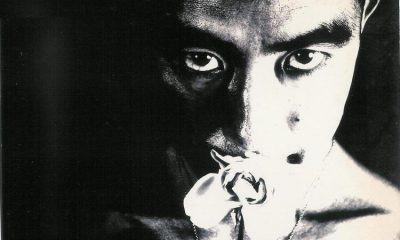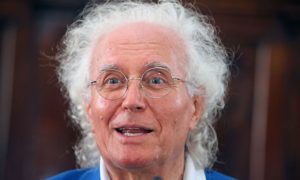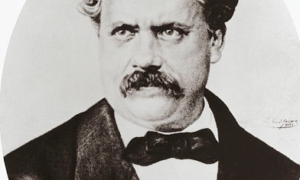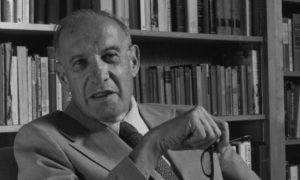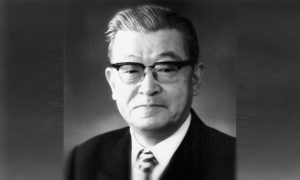Poet
Lady Mary Chudleigh
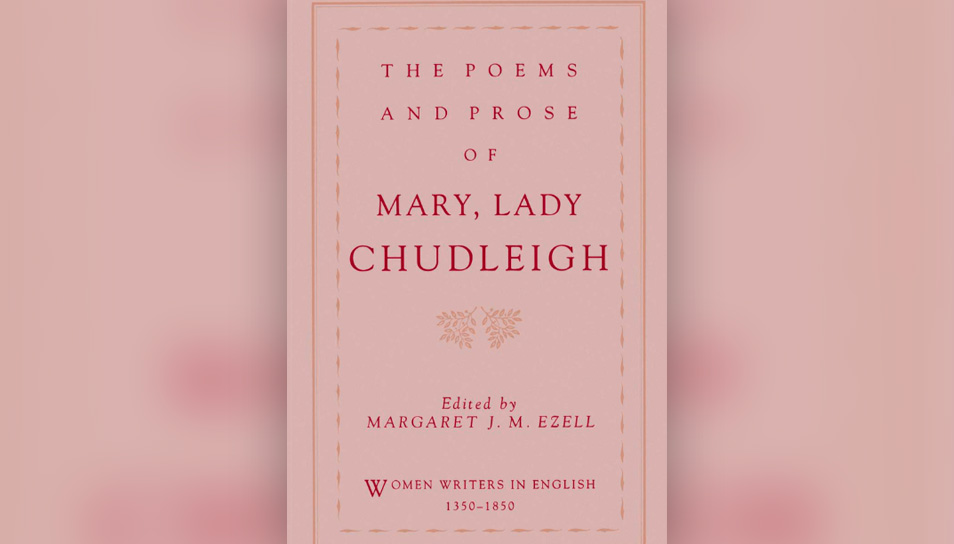
Lady Mary Chudleigh Biography
Lady Mary Chudleigh (1656-1710) was born in Devon, England. Poet. Considered one of the most relevant female figures of her time. Chudleigh promoted through her poetry gender equality, reneged on traditional gender roles and sought that the female figure should be respected. She is seen as a feminist poet. Her most prominent poem is To the Ladies, written in which she delved into the life of the married woman, criticizing the power of the man and how his will was more important than the voice of the woman. In it, she mentions: fearing her husband as to a deity. She must obey him, she must serve, without ever acting, without ever saying. Her writings added to the criticism against female repression, by authors like Mary Ann Radcliffe.
Early years
Born into a wealthy family, her mother was Mary Sydenham, a member of a prominent local family. Her uncle Thomas Sydenham, was a renowned London doctor, a friend of John Locke. Chudleigh was interested in writing from an early age, an area in which she excelled by exposing her writings to her close friends and family. During those years Mary, she educated herself in a self-taught way and embraced the faith of the family, becoming an Anglican devotee. Thanks to the prestige and money of the family, she could afford to cultivate her love for poetry and literature, later joining literary circles in which she became friends with famous writers of the time, such as Mary Astell and Elizabeth Thomas.
Lady Mary Chudleigh’s work
After training, she began to write and present her poems to her friends in small meetings, a common practice at the time. At the beginning of the 18th century, she published her first book, The Ladies Defense (1701), a long poem written in response to the sermon The Bride-Woman’s Counselor, given by John Sprint, in which the cleric mentions that the woman’s duty is to love, obeying and honoring her husband. As poet and intellectual Chudleigh, opposed the approach of the cleric in her poem, in which she asked for greater opportunities for women, in the educational field, also highlights how oppressive marriage was for woman, who had to fulfill her husband’s wishes, which is why most married women lived under a lot of pressure without expressing their opinions.
After being published the paper was severely criticized for the ideas it promoted, becoming censored. Two years later, she published Poems on Several Occasions (1703), a series of poems in which the author spoke about the friendship between women and the joy it offers when intellectual interests are shared between them. This also addresses other topics such as happiness and love; also, in this work she included a short poem for the queen.
This poem included her most prominent and well-known poem, To The Ladies, in which Chudleigh talks about marriage, highlighting how oppressive it was for women, who after getting married became the husband’s servants, who no longer so amble as it was before his proposal. He becomes a tyrant, slowly breaking the spirit of the woman. In this, the author calls women out to avoid marriage, in her words: Avoid, sweet maidens, that undesirable state, and all that adoration that suppurates hatred. Value yourself, and despise the gallants.
Chudleigh’s last book was Essays upon Several Subjects (1710), a book dedicated to Princess Sophia. This included 17 poems in which the writer deals with themes such as self-esteem, friendship, pride, love, greed, fear, death, life, and anger, among others. At this time the writer was married and had six children, of whom four died. About this aspect of her life, little is known, although it is believed that based on what was written by the author, the marriage was not happy, however, these are only speculations. It should be noted that despite being married, she continued writing and publishing, and her husband also allowed the reprint of her work after her death.
In the last years of her life the writer faced difficult moments because the death of her mother and two of her siblings seriously affected her, this situation deteriorated the health of the writer, who was admitted to her room due to her poor health, sometime later she passed away.
The work of the British poet has been considered a feminist for her defense of rights and gender equality. However, several scholars point out that although she delved into certain aspects and promoted the change in the way women looked, his work cannot only be understood in that way, given that it is complex, versatile and deepens on various topics, it is also written in a certain context and reflects the atmosphere of a different era. Her poems were included in various anthologies published between the 18th and 19th centuries, making her one of the most recognized poets of her time.

Author
Sophocles
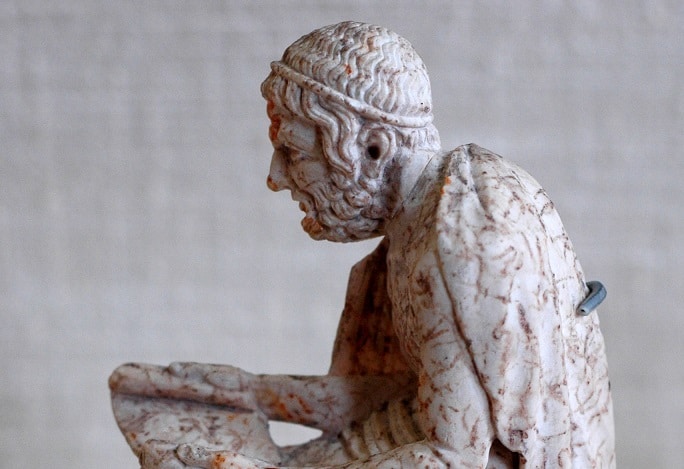
Sophocles biography
Sophocles (495 b.C.-406 b.C.) Greek tragic poet. Born in the Colona region, Greece. Son of a rich gunsmith named Sophilo. During his youth he served as director of the youth choir, he participated in the choir to celebrate the victory of Salamis. In 468 b.C. he was in a theatrical contest held annually in Athens during the Dionysian festivities, in which he defeated Aeschylus and became known as a tragic author annually. This event was significant for his successful career as a poet.
From this moment, he began a literary career without brake: Sophocles came to write up to 123 tragedies to compete in the Dionysian festivals. He obtained approximately 24 victories, although on one occasion he was dethroned by Euripides in one of the dramatic contests held in Athens. Now, compared to Aeschylus who had achieved 13. As a result, he catapulted himself as an important enlightened figure in Athens. In its moment of the boom, the context of the city was in its maximum cultural splendor. He related to Herodotus and Pericles, the first he met in Athens around 441 b.C. while participating as a guest in a great oratory event, he shared his famous texts and received an important prize for it. For his part, Pericles maintained a close friendship with Sophocles, this Athenian politician had great admiration for the magnificent works of that poet.
Sophocles not only developed in the world of prose, he also did as a strategist, twice, he participated in the Athenian expedition against Samos in 440, an event narrated by Plutarch in his biographical collection called Parallel Lives, in said, proposed to present with more relevance the moral character of each character, than the political events of the time; for that reason the exhaustive treatment on the aspects of the character, based on great number of anecdotes. His intention was to reveal the nature of the man in question.
“There is something threatening in a silence too big.” Sophocles
Although it is true, the production of this Athenian is more extensive than is believed, many of his works have suffered the ravages of time and, perhaps, oblivion. However, some fragments of works are still preserved today and only seven tragedies are complete: Antigone, Oedipus Rex, Ajax, Las Traquinias, Philoctetes, Oedipus in Colona and Electra. In these works the contributions of Sophocles in the dramatic technique can be revealed: the introduction of a third personage in the scene, with this the dialogue has more dynamism, another contribution was to endow with psychological complexity the heroic personage of the work. Because of his remarkable expressive balance, Sophocles is considered the father of Greek dramaturgy. He also made numerous contributions, such as, for example, the break with the fashion of the trilogies, assigned by Aeschylus.
The dramatic action is conceived by Sophocles as a conflict of wills. He conceived it as the set of procedures for transmitting a story. He did it by means of a line of action of the fable, propitiating the interaction of the characters with each other. So the author was devising and building the links of the fable chain. In this way, he took for granted in the world of dramaturgy that there are events that do not appear in the work plainly but are taken as antecedents, generating likewise, a hierarchy in the characters of the work.
Next, we will briefly explain his most outstanding works, in Antigone narrates an opposition between the city and the blood; Antigone is a mythical woman who bravely confronted men to achieve their intentions. Basically, the work shows a reflection on tyranny, the postulates of the State and the conflicts of conscience. It was exhibited to the public in 442 b.C. On the other hand, Sophocles used archetypal characters to confront respect for religious norms against civil ones, personified by Creon and the others by Antigone, respectively.
Another of his tragic works is, undoubtedly, Oedipus king. Aristotle considered it the most representative and perfect of Greek tragedies. In short, it is an excellent prototype of the so-called tragic irony, since the expressions of the protagonists turn in a different sense from what they pretend; such is the case with Oedipus, determined to find the culprit of his misfortune, when inside he knew that he was the guilty himself, for having violated the law of nature, by killing his father and lying with his mother. So, a confrontation arises between human law and natural law, we can intuit that it represents the most balanced formulation of the cultural conflicts of the time expressed in the Greek tragedy.
Sophocles died during the war with Sparta, which meant the end of the Athenian rule, versions claim that the attacking army agreed on a truce to give way to the celebration of his funeral, with great solemnity and admiration. He was buried in the family tomb near Deceleia, on his tomb the figure of a mermaid was erected. Sophocles died, around the age of 90, in 406 b.C. in Athens, the causes of his death are not really known.
Author
Percy Bysshe Shelley
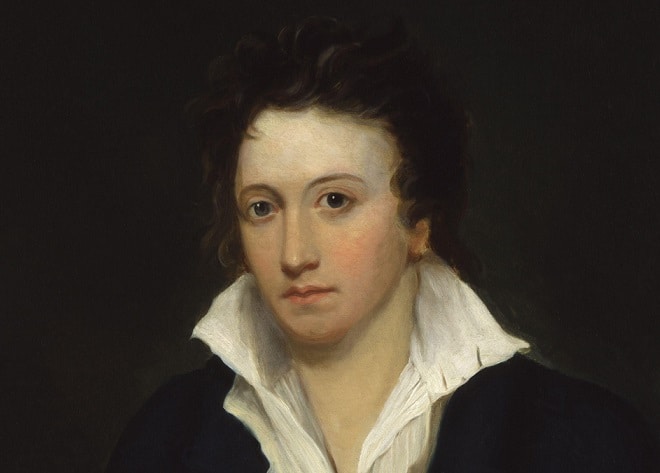
Percy Bysshe Shelley biography
Percy Bysshe Shelley (August 4, 1792 – July 8, 1822), poet and representative of English romanticism. He was born in Worthing, West Sussex, England. He was raised in a wealthy family that provided the best education, studied at Eton (1804-1810) and then entered the University College of Oxford, but, from there was expelled in 1811, because of the publication of his treatise entitled: The need for atheism; the content categorically questioned the authority with a quite subversive tendency. In London, he experienced love for the first time thanks to the beautiful young Harriet Westbrook. Actually, their love was not validated by their relatives, so they decided to flee and marry in a rural area of northwest England called the Lake District. In that place, he was inspired to write his first important poem, Queen Mab (1813).
His thought regarding the existence of God was very criticized, but he said that the generality of the human race was ignorance. The need to name and understand hidden, distant and unknown events, caused God to be named as responsible for what man was unable to understand. Following Shelley, every time we say that God is the author of some phenomenon, we are ignoring how such phenomenon was able to operate with the help of forces or causes that we know in nature.
In this sense, man imputes to the Divinity not only the unusual effects that disturb them but also the simple ones, whose causes we could understand if we study them. In short, man has always respected the surprising effects that his ignorance did not allow him to unravel. From this ignorance of nature by man was born the imaginary of the Divine. From 1811, Percy Bysshe Shelley received a clear influence from William Godwin because he maintained an epistolary and personal relationship for years; Godwin’s influence on Shelley’s poetry is already noticeable in 1813, while he was part of the second generation of the circle of romantic writers.
It should be noted that his work was enriched with the contributions of other authors but keeping the imprint of his teacher to reach the idealistic tone of his latest compositions. Now, in several of his works, we can appreciate a multitude of attributes that allude to his teacher: radical thought; driven by the French Revolution, generating the revival of radicalism in British culture.
The influence of Godwin is expressed in the impulse of ethical rationalism, the establishment of utopian proposals, the vindication of the passions and the principle of the primacy of feelings. These four characteristics gave space to the theoretical foundation of English romanticism, expressed in English literature. From this moment, English literature is given greater relevance to morals and behavior, than to religion and traditions. From this point, it is good to emphasize that Shelley considered the German romantic philosophy as counterrevolutionary. Nevertheless, there was a point of concurrence between the romantic movements, the German and the English, which was individualism; in poets such as Shelley, specifically, it reflected overtly revolutionary tendencies.
Percy Bysshe Shelley developed a political ideal based on the liberation of peoples and the revolution. Although this was not unique to the person of Shelley; but of the generation of poets to which he belonged. They endeavored to develop alternative mythology to Christianity, oriented towards the public and committed to the social. Rejecting every Jacobin idea and understanding poetry as a revolutionary weapon: It is a call to action, for the author a denunciation. In addition, for Shelley, the human being is the center of all reflection. We continue to warn of the remarkable influence of Godwin on Shelley, although the teachings of many other authors and movements, granted a personality to his thought and his creativity.
The differences between disciple and teacher existed: Godwin considered that peace and tranquility were necessary for the spiritual perfection of man; Shelley relied on social unrest and discontent. In this sense, Shelley embraces the ideals of Thomas Paine and his conception of the value of man as a social being. The Godwinian individualism, in this way, inspires Shelley to place man in society: an ideal and symbolic vision of society as a set of individual wills limited by the pettiness of the world. However, Shelley relies on the transformative capacity of social institutions, at this point, he timidly distances himself from Godwinian anarchist thought.
His thought can be analyzed in his various works: Epipsychidion (1812), The Spirit of Solitude (1816): one of his best-known works. In short, the poem The Revolt of Islam (1818); the play in verse Los Cenci (1819); sonnet England (1819); Prometheus Unchained (1820), recounts the free thought of humanity, praises freedom and attacks tyranny. He then published: The Mask of Anarchy, Men of England and The Witch of the Atlas, probably his best-known works during the nineteenth century. Also, Adonaí (1821); Treaty The defense of poetry (1821); The need for atheism (1822); The triumph of life (1824), Ode to freedom (1825), makes mention of the deed of the Spanish people in the liberal revolt against the regime of Fernando VII.
The breakdown of Shelley’s friendship with Godwin occurred when he decided, unhappy in his marriage, to marry Mary, the 16-year-old daughter of Godwin, with whom he spent a lot of time while consulting in Godwin’s library. It was there that he fell in love with Mary. In July 1814, Percy Bysshe Shelley decided to run away with the young Mary, leaving behind his wife and two children. They were married in the presence of Mary’s stepsister, Clare Marie Jane Clairmont; the three embarked towards Switzerland. Six weeks after the flight, they returned to England to find Godwin offended and outraged. In short, he learned of the suicide of Harriet, his ex-wife, and lost the guardianship of his two sons.
Mary did not go to school, she was educated at home and acquired an admirable knowledge of the intellectual circle of her father. We can affirm that his presence was very enriching in Shelley’s life. While she was married, she wrote the famous work of Frankenstein, a book she wrote before she was twenty. Although, it is affirmed that her written production could have been greater if her husband had not overshadowed Mary’s creativity. Despite this, she is considered one of the great authors of the short story, a fertile genre in English literature.
Due to his condition: tuberculosis, he left in the company of Mary his country to settle in Italy. He lived in Milan, Lucca, Venice, Naples, and Florence; places that took the opportunity to write some of the works mentioned above. At that point, his works showed melancholy before the misfortunes of existence. This great romantic poet died in a shipwreck, in Lerici, Italy, on July 8, 1822.
Author
Hesiod

Hesiod biography
Hesiod (750 – 600 b.C.), poet. He was born in Ascra, Boeotia, Greece. His family settled in Boeotia, after leaving behind Cumas, home of his father Dion. This transfer occurred due to the critical economic situation experienced by this family, his father had lost all his merchandise for a bad investment, so he had to go to the help of his parents in Boeotia. Actually, the situation was not much better there because they had to go through serious hardships.
Hesiod had a brother, Perses, with whom he never had good relations, this situation became more acute with the death of his father because of the distribution of the paternal inheritance. Apparently, Perses had squandered his part quickly and brought a judicial suit with Hesiod. The court of law agreed with Perses and Hesiod had to give him a fraction of his inheritance. This event was the inspiration to create the work entitled The works and the days, where it touches the theme of the just procedure among human beings so that the justice of Zeus triumphs.
Hesiod lived in a society dominated by a nobility that eventually acted and arbitrarily legislated, his family part of the small Boeotian peasants, who were struggling to acquire a piece of fertile soil. Due to this situation, Hesiod had to dedicate his childhood and part of his youth in agriculture and pastoralism in Naupacto. Once when he was in his hearing, they say that the muses, daughters of Zeus, appeared to him and from there he decided to dedicate himself to poetry. For Greek mythology muses play an inspirational role in the arts and music, each one handles a branch in both the arts and music.
Hesiod knew the Homeric poetry thanks to the wandering rhapsodies, his job was to proclaim or recite through the streets of several Greek cities Homeric poems or epic poems. His interest was such that he learned his trade, although he never managed to undertake a long journey. When he joined the circle of the rhapsodies, his poems were transmitted quickly. One of his most important moments in poetry was when he moved to Chalcis to attend funeral games in tribute to Anfidamante where he participated in a poetic contest that won. His prize was a tripod with two handles that he offered to the Helicón muses.
Hesiod and Homer were linked, although it is doubtful of the true existence of Homer, it is said that they lived at the same time, it is related that the two were rivals in a poetic competition, in this public vote in favor of Homer, proclaiming him champion with praises and joys, but the judges awarded the prize to Hesiod because his recital was dedicated to peace; while Homer’s had been dedicated to war. The poems of Hesiod have several differences with respect to those of Homer; those of the first reflect their own concerns, while Homer reflects his personality; Hesiod is inspired by his time and country, while Homer refers to the legendary past. Although not everything is divergence, they share the metric in hexameters, the epic language and the formal coincidences of the rhapsodic tradition.
His works began to be valued from the sixth-century BC. they were the object of study and veneration: the Greeks valued it as promoter and forger of its mythology, in the Middle Ages its two main works were copied abundantly, and in the Modern Age it was considered an important precedent of the first Greek philosophers. Hesiod is currently a good source to contrast the mythology of several eastern peoples. Another of his contributions is that he was the first compiler of the ancient Greek religion. He carried the entire mythological body transmitted orally and the most important thing is that it was interpreted from a moral and practical perspective.
His most representative poems are Theogony, in which he relates the genealogy of the gods of Greek mythology, and works and days mentioned above. Now, Heracles’ shield has covered a controversy because it has been considered a non-Hesiodic poem because of the great differences that this work presents with respect to the other two, although others claim that he was the author of at least fifty-four verses
In his famous work Theogony, Hesiod mixed several generations of gods, such as Uranus, Chronos, and Zeus, narrates a myth that has room in poems of the Near East, from the Hittite and Hurrian civilizations, these human groups are said to have possibly taken these myths of the Sumerian civilization. These myths are the Myth of the Celestial Kingdom and the Song of Ullikummi that present successions of gods in a violent way. This indicates that to read Hesiod is also to understand the mythology of the East. This influx can be related to your stay in Asia Minor.
Hesiod’s works are characterized by short, rigid and formal phrases, traits that help to give his poetry a character archaic. Together the development is more associative than logical, repeats and digressions proliferate without having a clear thread. In addition, it is characterized by making very intimate narrations as part of the poetic discourse and claiming his individuality as an author. His life as a farmer generates a vision of the world that is not idealized, seeing life as a sequence of effort and continuous work, for that reason he offers practical advice for the man in the field.
The works and the days, is a clearly didactic work that tells visions about agriculture, now this text contains great relevance because through it we can know the dynamics of the oldest society of the Greek mainland, because it talks about the peasants, craftsmen, sailors and small merchants who settled their economy in the system of production and barter. In short, in this work he gives advice on family administration, moral conduct, on fieldwork, etc.
Hesiod also shows in the work the dispute with his brother Perses due to the distribution of the inheritance, advising his brother to seek sustenance with the honest work of the cultivation of the fields, this is based on the myth of the two Eris. The poet questions the evil and concludes that the human being is the maximum responsible. In this text, he vindicates justice against the abuses and inequalities of the powerful. To refer to the misfortunes of the world speaks of the myth of the ages, and the myth of Prometheus and Pandora. It affirms that the justice of Zeus and the work will be the unique means that will solve the misery and the degradation of values that humanity suffers.
We see then that his works were and have been very important, after his death Hesiod was popularized even more. Unfortunately, he was in the shadow of Homer. Hesiod died in Ascra and his ashes were kept in Orchomenus, in this place he was honored as a great poet and scholar.
Philosopher
Friedrich Nietzsche

Friedrich Nietzsche biography
Friedrich Wilhelm Nietzsche (October 15, 1844 – August 25, 1900) philosopher, poet, musician, and philologist. He was born in Röcken, Saxony-Anhalt, Germany. Friedrich Nietzsche is considered one of the most important contemporary thinkers of the nineteenth century. His parents were Carl Ludwig Nietzsche, Lutheran pastor and private preceptor in the German duchy of Saxony-Altenburg, and his mother Franziska Oehler. The family had to endure the death of his father in 1849 and that of the younger brother the following year. After these sad events the family moved to Naumburg due to economic problems, so they went to the maternal grandmother’s house.
The terrible death of his father because of a problem that affected his brain was very tragic for a four-year-old, Friedrich had to see his father suffer for months and then lost his brother who looked bright and happy, a victim of a sudden seizure attack which killed him in seconds. These situations were key to the subsequent development of Nietzsche’s philosophical thinking. When the grandmother died in 1856, the family got a house of their own. During this time the young Nietzsche attended a private school, the prestigious Pforta school, where he established a friendship with Gustav Krug and Wilhelm Pinder. While at school Nietzsche wrote his first kind of philosophical treatise: On the origin of evil.
In 1854 he began attending the Domgymnasium in Naumburg, but then, thanks to his talent for music and language, he was admitted to the renowned Schulpforta, where he continued his studies until 1864. He became friends with Paul Deussen and Carl von Gersdorff. In his free time, he wrote poems and musical compositions. The literary education he received was of great help, especially in the study of the Greek and Roman classics. Now, during this period he was under the influence of the poet Ernst Ortlepp. When he finished, he began studying theology and classical philology at the University of Bonn.
He was a member of the Burschenschaft Frankonia with Deussen. But he abandoned theology and devoted himself to philology alone with the guidance of Professor Friedrich Wilhelm Ritschl. The following year he moved with Ritschl to the University of Leipzig. There he would establish an intimate friendship with the student Erwin Rohde, who helped him to open his field of thought and also promoted the writing of several texts on philology, which would be published a little later. He began to read the works of Arthur Schopenhauer. He scrutinized the work of Friedrich Albert Lange: History of materialism. Both experiences paved the way for him to start in the discipline of philosophy, overcoming his interest in philology.
In 1865, he contracted syphilis it is said that one of the reasons was a visit to a brothel while he was traveling through Cologne. In 1867 he carried out one year of voluntary military service with the Prussian artillery division of Naumburg. But the following year he suffered an accident that excluded him from military service and then he focused on the study. Richard Wagner was a man he met at that time and was fundamental in his development. Then, Nietzsche was a professor of classical philology at the University of Basel. In 1869 the University of Leipzig granted him a Ph.D. for the quality of his research.
Immediately the University of Basel appointed him professor of classical philology and the following year he was promoted to honorary professor. By this time he had been rejected by the poet Lou Andreas-Salomé, an issue that affected his emotional health. Nietzsche renounced his German citizenship, spent the rest of his life officially without nationality. But that did not stop in 1870 serving on the Prussian side during the Franco-Prussian war as a sanitarian because he was not accepted as a combatant. There he witnessed the traumatic effects of the battle. He contracted diphtheria and dysentery, diseases that ruined his health for life.
Back in Basel, Friedrich Nietzsche witnessed the establishment of the German Empire and the rise of Otto von Bismarck, expressed skepticism. By that time, he met Franz Overbeck, a professor of theology, also met the historian Jacob Burckhardt. He also received the influence of the philosopher Max Stirner, whose influence will be notable in him. If we talk about the work of this German philosopher we must say that his first book was The birth of tragedy in the spirit of music. However, the work was not well received among his philologist colleagues. But, Wagner went publicly in defense of Nietzsche.
Among the divisions that have been proposed for the works of Nietzsche, it is divided into the first period of criticism of culture and another with a more metaphysical and hermetic tone. His hermeneutic work is oriented within Western rationality and morals that always prejudice, error or mere sublimation of impulses vital. Nietzsche announces The «death of God» this must be interpreted not so much in a biological sense as in a hermeneutic one: they are the different versions of the world, or ways of living it, which are confronted.
Friedrich Nietzsche has been critical of the society that he labeled as decadent and announced the arrival of a superman, he has a greater capacity for the truth about the world, and his way of living has greater value and risk capacity. The philosopher developed the doctrine of the eternal return, according to which the structure of time would be circular so that each moment will be repeated eternally. Hence the idea that, if each moment must be repeated eternally, its end is only in itself, and not in the future.
During his life he was an author who wrote a significant number of texts such as Fatum and history (1862), Freedom of will and fatum (1868), Homer and classical philology (1869), Socrates and tragedy (1870) , On the future of our educational institutions (1872), On truth and lie in extramoral sense (1873), Human, too human. A book for free spirits (1878), Thus spoke Zarathustra. A book for all and for none (1883), The genealogy of morality. Controversial writing (1887), Ecce homo. How to become what one is (1889), among others.
QUOTES
“There is always some madness in love. But there is also always some reason in madness.”
But all the diseases that undermined his health also impacted his mental state. The last eleven years of his life he spent in seclusion, first in a center in Basel and later in another in Naumburg, it was said that he suffered from madness, although nowadays it is said that he was branded as crazy because at that time there was no knowledge about his disease. Nietzsche died on August 25, 1900.
RECOMMENDED WORKS
- Existentialism
- Contemporary philosophy
Author
Eurípides

Eurípides biography
Euripides (September 23, 480 – 406 b.C.), poet and dramatist. He was born on the island of Salamis, just as the famous battle of Salamis began. His father, Mesarco was an Athenian landowner, and his mother Clito a woman belonging to the nobility. His father decided to direct him to gymnastics, fully convinced by an oracle that Euripides would achieve great triumphs. But this did not work, the little one was finally more inclined by poetry, music, and painting. In his youth, he received a fertile education being a disciple of Anaxagoras de Clazómene, Protagoras, Archelaus, Pródico and Diógenes de Apolonia. In 466 b. C. had to serve two years of military service. He was a lover of painting, of reading, at the end of his life he held the largest library in Greece, and he hated politics.
At the time, great talents flourished, which greatly influenced his literary and philosophical works. Therefore, he took key parts of the sophists and the tradition of the pre-Socratics as Xenophanes, Heraclitus, Empedocles, and Democritus. On the other hand, the literary heritage of Homer, Pindar, Solon, Theognis, Hesiod. This made his works varied and dealt with broad themes. In that sense, he was one of the most progressive figures of the so-called Athenian Enlightenment.
Despite his estrangement from public policy, because he preferred to live apart in his Salamina farm. He was concerned, then, to introduce new conceptions in the tragedy, giving prominence and dignity never seen before to the slaves in their theatrical roles. He also focused on showing the most absurd, stupid and cruel aspect of the war in works such as the Troyanas. His fame earned him thousands of followers, as well as some friends. So, he formalized a small circle of enlightened friends who constantly met to talk based on one of his hundreds of books. Of them, he was the most critical of laws and politics.
Euripides began to write and present his works in the dramatic festivals of Attica during the year 454 b.C. It was in the year 442 b.C. who managed to get the first prize. A Distinction that he won three more times. As we mentioned earlier, his works expressed the clear influence of sophists and philosophers such as Protagoras, Anaxagoras, and Socrates. As a result, it was strongly attacked by Athenian comedy writers, such as Aristophanes. At that time, the Athenian society was divided into those who supported the stability of conservative values, represented by Aeschylus and Aristophanes, and those who followed the rationalist revisionism, by Euripides, Socrates, and the Sophists.
Hence Aristophanes’ attack on Euripides, expressed in his comedy The Frogs, Thesmophoria, and The Assemblymen, in which he expressed ridicule and malevolent allusions of himself and his mother, who described her as a woman of low social extraction, cataloging her as a fishwife. Although this really was not like that. Anyway, the sophist approach was finally imposed with The Peloponnesian War contributed, to verify that the beliefs of yesteryear would not be useful for the future.
His works were criticized given their unconventional character, in them, the heroes and princes spoke a daily language, in a few words, were placed at the same level of humans. The pretty spooky situation for the time. In addition, he expressed total disregard for moral and religious values. Euripides was the greatest exponent of the new moral, social and political movements of Athens. He was responsible for giving a new step to the tragedy. Focused on the thinking and experiences of the ordinary human being, rather than the legendary figures, his characters were treated in a natural way. In short, he separated the chorus from the action, a situation that generated negative criticism. In addition, he was criticized for including an explanatory prologue. Another of its resources was the unexpected introduction of a god to facilitate the outcome of the work.
His treatment was innovative: he altered and mixed the myths among themselves to reinterpret them, starting from the conception of man as a measure of all things. The mortal characters manifest feelings such as doubt and fear, allowing themselves to be dragged by their passions, with frequently fatal consequences. In the secondary characters, there were many profiles present in the works: the heartless stepmother, the orphaned children, the decrepit and ridiculous elders, the heroine, the weak husband. The erotic passion and all the taboos related to it occupied a very important place in the Euripides tragedy.
If we analyze your works, carefully respect the chronological sequence; The story is preceded by a prologue in which what was happening in Athens is transferred to a mythical action. This method was questioned because, it was claimed that, although it was intended to Entering the spectator by anticipating events, sometimes had the opposite effect, causing confusion regarding the outcome. Despite this, Euripides continued to do so. This controversial dramatist gave a total turn to the function of the choir: the representation of the moral judgment of the spectators.
Now, the dramatic force of the choir was diverted towards the actors, who begin to sing duets and sung monodies, expressing overwhelming feelings: hatred, madness, despair or passion. The tragedy of Euripides has a faithful relationship with music, praise rhythms are used to relax the dramatic action alternating with other rhythms that enhance the emotional. The extensive discourses of the protagonists were a reflection of the influence of sophistry. The intervention of each speaker had the same number of verses as the other, a faithful copy of the rhetorical tournaments. His most important works were: Alcestis, Medea, Heráclides, Hipólito, Andrómana, Hécuba, The Supplicants, Electra, Troyanas and Heracles.
His works that today are admired and respected; at the time they were quite questioned by the public. As a consequence, at the end of his years, old and tired, he moved to Macedonia, where he received the protection of King Archelaus. At the time, he retired from court and the next two years he died in Pela in the year 406 b.C.






